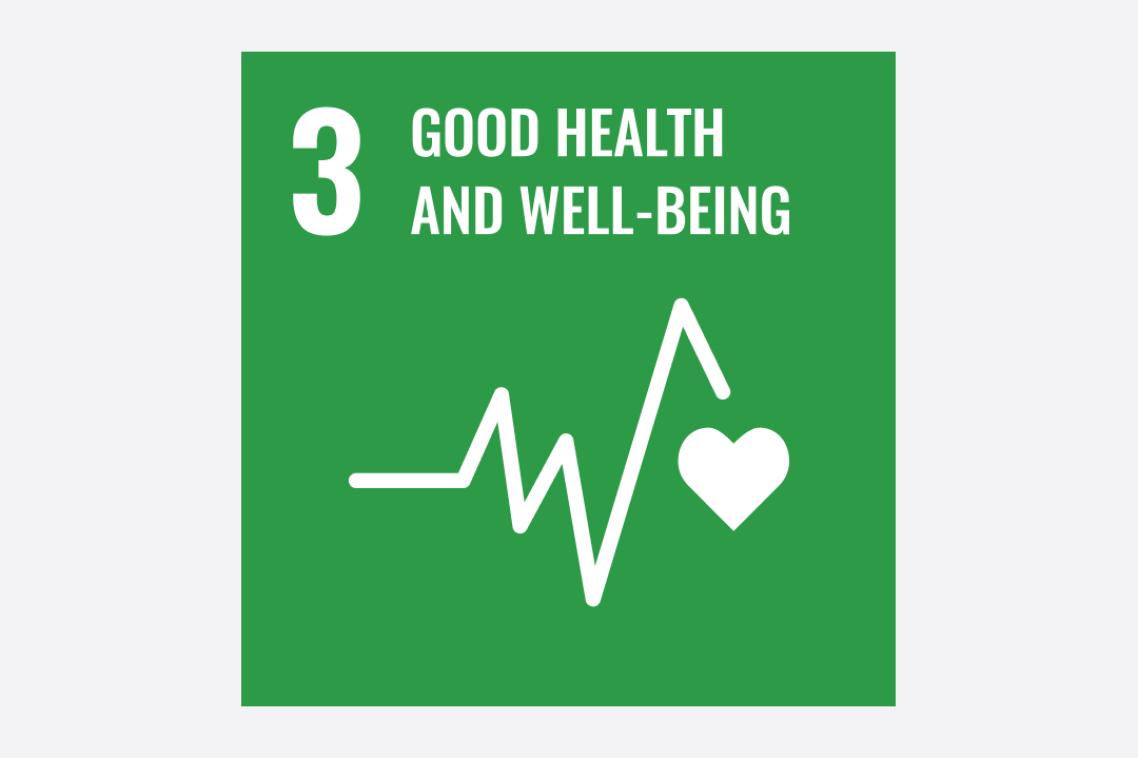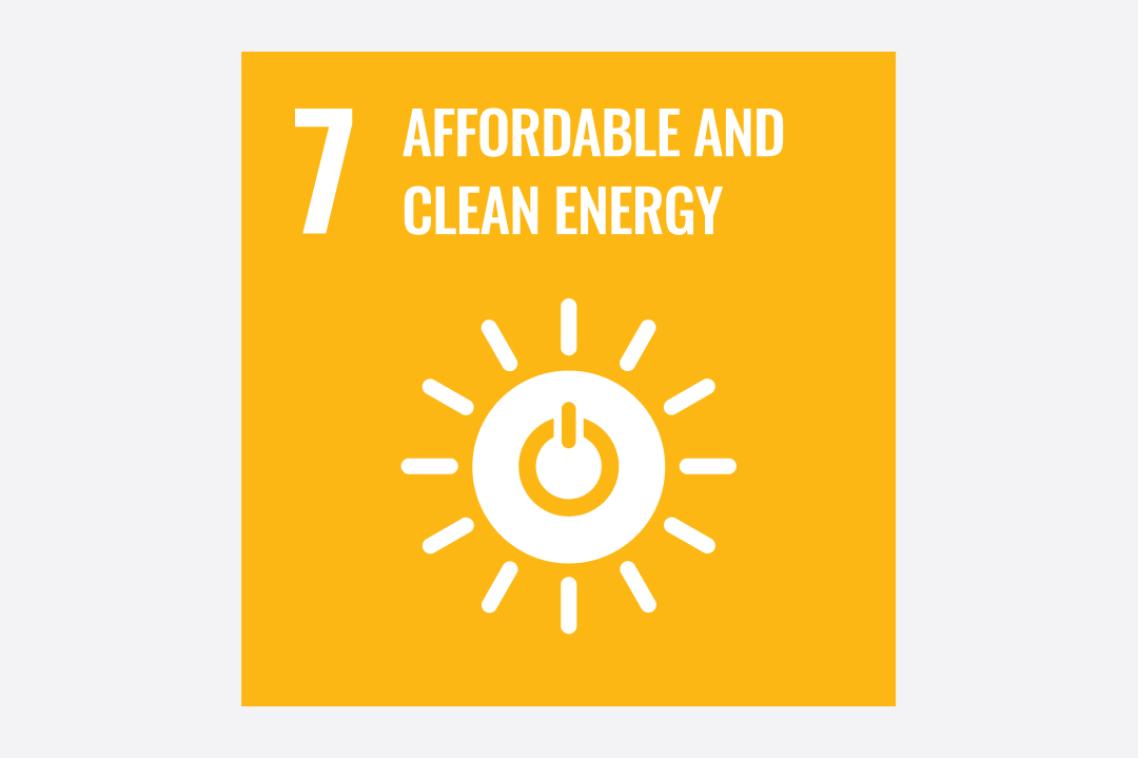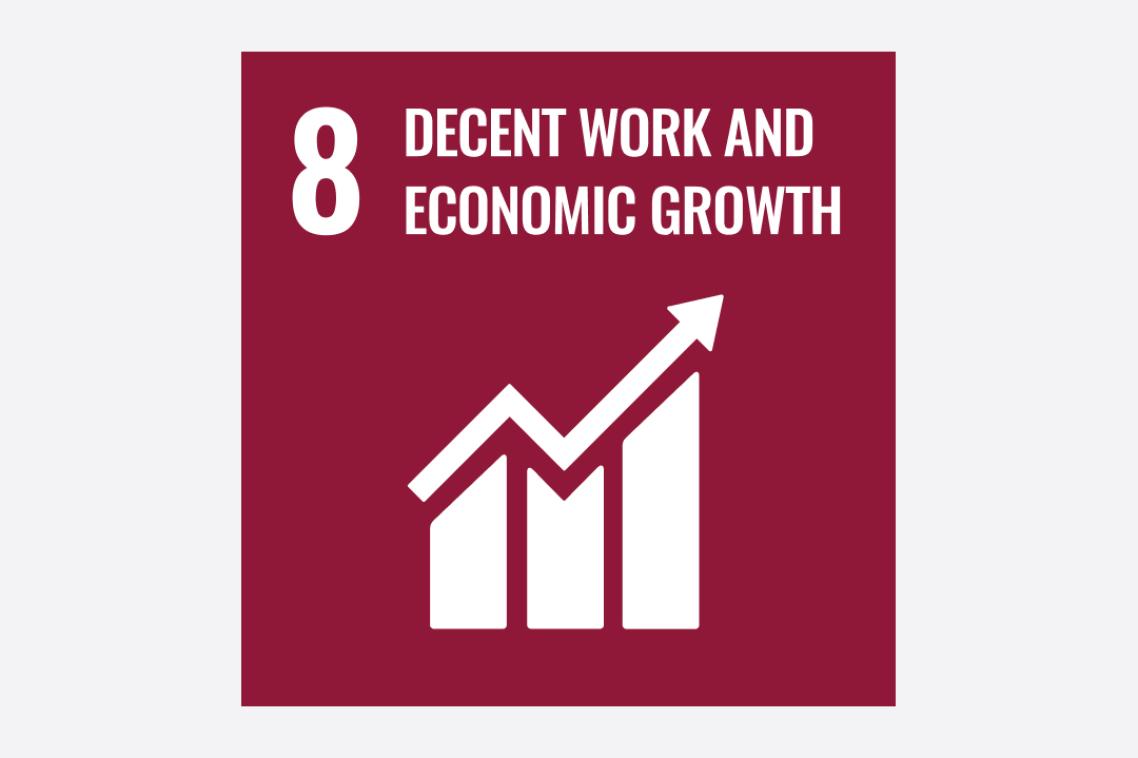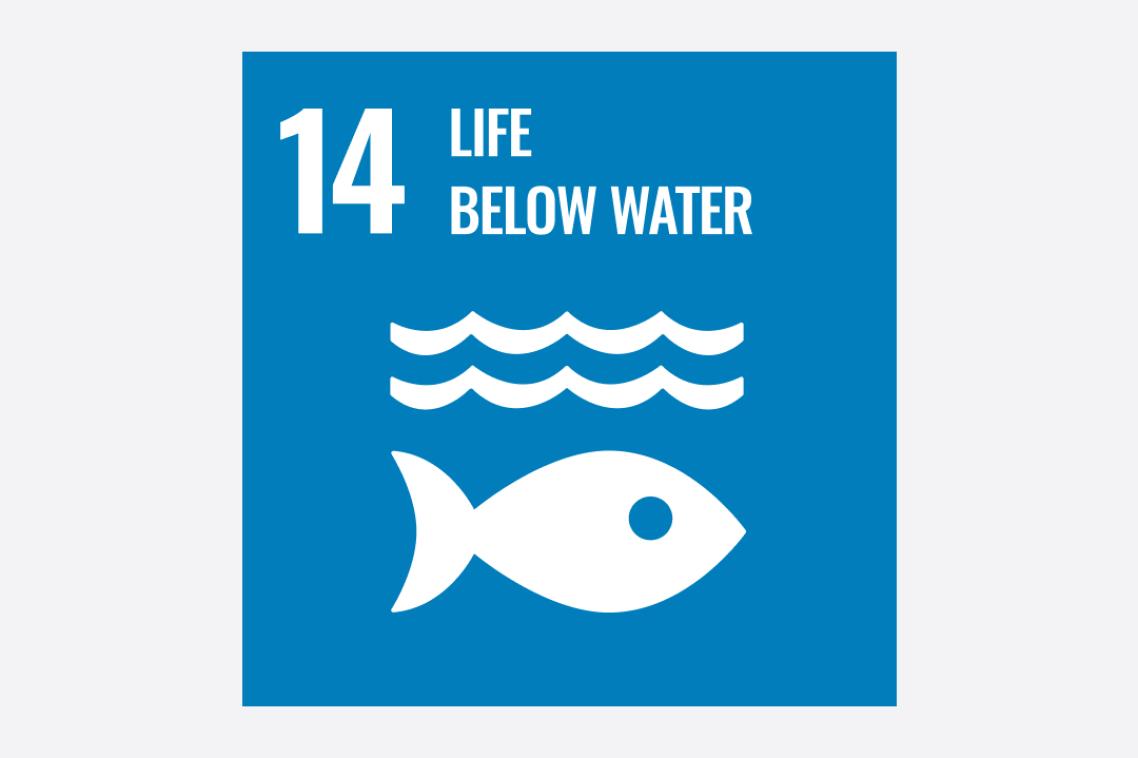SDG 6 – Clean water and sanitation

2024 progress
The University of Queensland (UQ) demonstrates a strong commitment to Sustainable Development Goal 6: Clean water and sanitation, through a comprehensive approach that spans campus operations, research and community engagement.
As part of our Sustainability Strategy, we have implemented water saving initiatives and water management practices to better understand and manage our water consumption and use across campuses.
Educational initiatives and partnerships extend our impact beyond campus, offering training, research collaboration and practical solutions for water conservation.
We engage with local and international communities to improve water security, sanitation and environmental health. Through innovation, policy development and outreach, we contribute to sustainable water management and foster a culture of responsible water use, aligning our efforts with global sustainability targets.
Read our SDG 6 2024 report (PDF, 225.03 KB)
See how we make a difference across key areas:
Water usage and care on campus
At UQ, we recognise the deeply interconnected nature of water and sanitation, understanding that access to clean water and effective sanitation systems is not only essential for public health and wellbeing, but also plays a critical role in supporting sustainable development across environmental, social and economic dimensions.
UQ actively works to implement initiatives throughout our operations – such as water-sensitive urban design (including native vegetation planting and stormwater capture systems and the use of recycled water) – to enhance sustainability and reduce environmental impact across campus operations now and into the future.
Water consumption
Understanding and managing water consumption is central to UQ’s Sustainability Strategy. While UQ sources potable water primarily from local water authorities across its various sites or in some cases, through specific contractual agreements with third-party providers, we have implemented a range of water-saving initiatives to reduce reliance on mains water and promote sustainable water use.
How we are achieving this
- Rainwater harvesting systems are installed across multiple campuses.
- We use of recycled water for non-potable applications such as landscape irrigation.
- We are proactive about leak detection and repair, ensuring that water losses are minimised
- We operate a water monitoring system where over 500 water meters are read and reviewed monthly, and the data is used to identify anomalies, detect leaks early and inform water efficiency improvements.
- Looking ahead, we are working to further automate our water monitoring and analysis to enhance efficiency and expand the reach of our water management efforts.
Water usage and care
UQ aims to achieve best practice in efficient water management and pilot new technologies demonstrating UQ’s leadership in sustainable and responsible use of resources.
At UQ, we want to make it easy for people to say 'no' to bottled water and single-use plastic. Water refill stations have been installed around UQ, so students, staff and visitors can make use of their re-usable water bottles and enjoy fresh water refills whenever they are on campus.
UQ integrates a comprehensive set of Design Standards (PDF, 1.05MB) into all design and construction projects. These standards are reviewed annually to ensure alignment with best practices, regulatory requirements, and sustainability goals. They guide the planning and implementation of hydraulic infrastructure across UQ campuses, supporting our commitment to sustainable water management and resource efficiency by emphasising water-efficient design principles, including:
- rainwater harvesting systems and integration
- high-efficiency fixtures to reduce water usage
- water storage tanks for non-potable applications
- advanced metering to support monitoring and leak detection.
We manage our grounds seasonally and sustainably, adapting and aligning our planting strategy and gardening practices to the time of year and the weather conditions. We prioritise drought-tolerant, native and low maintenance species. We also undertake a range of sustainable gardening steps, such as:
- composting and re-using as much green waste as possible onsite
- implementing sustainable weed management
- enacting water-saving and irrigation measures.
These measures include using recycled water and harvested rainwater wherever possible to reduce our mains water usage.
UQ's iconic main lake has been redesigned to support a healthy and self-sustaining ecosystem, as part of the UQ lake and amphitheatre renewal project. An independent expert panel, convened by the International River Foundation and including Associate Professor Badin Gibbes from UQ’s School of Civil Engineering, set out to improve the lake’s health by creating a more natural system to support an abundance of aquatic plant life and provide a habitat for native fauna species. Now that the lake’s construction is complete, the natural environment is beginning to establish. It is expected that some fauna will repopulate naturally and flora will flourish over time.
Water reuse
We actively reuse water to support sustainability across our campuses. Recycled water is used for irrigation, while harvested rainwater is used in isolated sites for both irrigation and toilet flushing, reducing demand on potable water supplies.
Water in the community
UQ supports efforts in the broader community to address water management and water usage. This includes providing educational opportunities for local communities to learn about water management as well as providing practical off campus water conservation support and promoting conscious water usage in the community.
Water management educational opportunities
Centre for Water and Environmental Biotechnology (ACWEB)
The Centre for Water and Environmental Biotechnology (ACWEB) is a world leading centre in water research and an emerging leader in environmental biotechnology. ACWEB has broad collaborative links to over 100 different utilities, businesses, industry groups, research institutions and educational facilities around Australia and the world. The Centre plays an active role in engaging with communities and professionals to address water management challenges. Relevant 2024 activities included:
- Industry and Water Education (IWES) Training Courses – In 2024, the IWES held several training courses for environment and water industry professionals from 1–5 July. IWES was established over 40 years ago, and its courses are taught by leading industry practitioners and designed to keep busy professionals on the cutting edge of the latest trends, technologies and practices.
- International Water Association Nutrient Removal and Recovery (IWA NRR) Conference – Held from 17- 21 November 2024, this conference was a collaborative effort between UQ and Urban Utilities. The event invited scientists and practitioners to contribute their insights, knowledge and experiences in navigating wastewater treatment systems amid the evolving global landscape, serving as a vital platform for the exchange of ideas and the exploration of innovative solutions.
- ACWEB Seminar Series: The Centre hosted a seminar series on various topics addressing water and environmental biotechnology throughout 2024. Sessions ranged from practical applications of wastewater treatment to the role of chlorination disinfection in antimicrobial resistance, and energy-efficient resource recovery from wastewater – all relevant to community water and environmental health.
Off-campus water conservation support
Biofilm-based solution for cost-effective, high-quality drinking water
Researchers from the Centre for Water and Environmental Biotechnology began an Australian Research Council funded project in 2024 that proposes a novel biofilm-based approach for cost-effective drinking water treatment production. This addresses the challenge faced by water facilities in Australia of managing the growth of cyanobacteria, which are:
- a known major cause of taste and odour compounds and cyanotoxins
- posing an increasing problem due to climate change complications.
The approach of this research represents a simple retrofit to existing processes to drastically reduce the chemical dosing costs required and improve climate resilience while ensuring production of high-quality, safe drinking water.
Reducing toxins in wastewater for the economy, human health and the environment
UQ researchers partnered with Queensland Government-owned Urban Utilities, the Gold Coast City Council and South Australian Government-owned SA Water to develop a system to manage hydrogen sulphide, a harmful gas, in sewers, using smart algorithms to predict hydrogen sulphide build-up and deliver precise chemical doses to manage this issue. It is estimated that the technology can reduce chemical use by over 40%, with other potential benefits being the extension of service life of sewer infrastructures and reduction in the need for frequent inspections and maintenance work in wastewater systems, all of which add to residential water bills.
The control of corrosion and odour problems in sewer networks is also critical for water management and protecting human health and the environment. In 2024, this work won the Silver Project Innovation Award from the International Water Association. Improving sewer system efficiency and reducing chemical use support water conservation in urban infrastructure.
Capturing PFAS for cleaner water and better battery technology
In 2024, researchers at UQ’s Australian Institute for Bioengineering and Nanotechnology (AIBN) advanced PFAS remediation with a novel technology that can remove harmful 'forever chemicals' from water so they can be used in renewable batteries. The filter contains a patented sorbent solution that uses an ion-exchange technique to isolate and remove PFAS particles as the water passes through it.
In addition, the captured chemicals are available to be repurposed to aid decarbonisation since they have excellent properties for use in the improvement of energy density, safety and cycling stability of batteries. Supported by Advance Queensland, the technology underwent pilot trials in Brisbane and the U.S., with the aim of demonstrating potential for scaling up in industrial settings.
Cooperation on water security
Quantifying urban water security
In collaboration with the Asian Development Bank (ADB), the International Water Centre and other international partners, UQ’s Australian Centre for Water and Environmental Biotechnology (ACWEB) is involved in quantifying urban water security (water supply, sanitation, drainage, and affordability) across ADB’s 50 member countries.
The data collected feeds the Asian Water Development Outlook (AWDO) analysis, report and database, which influence the Asia Pacific Water Forum and guides, including approximately AUD$4.5B in urban water infrastructure investment per annum.
In 2024, progress against the Sustainable Development Goals sub-indicator relating to 'Safely Managed Water supply' (monitored through the Joint Monitoring Program), saw an improvement with an increase in countries reporting Safely Managed Water supply. This work was also presented in the Indonesia and Pacific Islands Water Forum.
Smart water supply systems in arid zones
Researchers from UQ’s Sustainable Minerals Institute (SMI) International Centre of Excellence (SMI-ICE-Chile) conducted research in 2024 that aims to develop a water supply planning software, open to all interested parties, that can be used by the mining industry, government agencies, communities and other stakeholders to design an integrated, efficient water supply model while minimising supply costs and environmental impacts. Developed in the Atacama Region and funded by Mitsubishi Corporation Inversiones Limitada Chile (MCI), the tool facilitates collaborative understanding of the regional context, optimises and maps water supply networks and evaluates the associated benefits based on economic, environmental and social performance criteria.
Examining reported company commitments to water stewardship
Researchers at UQ’s Centre for Water in the Minerals Industry released a publication in 2024 exploring the scope of corporate water stewardship activities that mining companies report and reflect on in the context of the commitments to water stewardship that the International Council on Mining and Metals (ICMM) has incorporated into its framework for members. Findings include that reporting off-tenure activity relating to collaboration and providing water governance beyond the mine remains complex due to contradictions with the generally accepted role of government agencies in water governance.
The research recommends refining the language in industry guidelines to encourage companies to contribute to or ensure internal water governance. These insights help clarify the role of mining companies in sustainable water management and encourage corporate cooperation in sustainable water governance and stewardship.
Reef Catchments Science Partnership
UQ researchers continued to enhance public understandings of the impacts of pesticide toxicity to reef environments through the Pesticide Reporting Portal and Pesticide Risk Metric Dashboard, as part of the Reef Catchment Science Partnership, a data gathering collaboration with the Queensland Government. These freely available tools collect and measure data to help monitor and analyse land-based pesticide runoff affecting coastal waters, supporting sustainable management and conservation efforts.
Reducing pesticides in aquatic ecosystems
Researchers at the Faculty of Science continued the Pesticide Projector project in collaboration with Farmacist, Queensland Government and Truii. The tool provides information to help users select pesticide active ingredients that are potentially less harmful to plants and animals in waterways, therefore contributing to healthier and more resilient aquatic environments. It is available to all communities involved in the recommendation, purchase and application of pesticides to agricultural crops in Australia.
Impact of flood sediments on Moreton Bay’s ecosystem
As part of a long-term research collaboration with Queensland Government-owned Urban Utilities and the Port of Brisbane, researchers from the School of Civil Engineering published findings in March 2024 assessing the impact of flood sediments on Moreton Bay. The study, conducted after the 2022 Brisbane River flood, revealed significant sediment deposition affecting 98% of the bay, reducing clean sand areas and increasing nutrient levels, contributing to the growth of a 'dead zone'. This collaboration is vital for safeguarding Moreton Bay's ecosystem and informing global best practices for managing flood impacts and protecting marine ecosystems.
Great Barrier Reef Catchment Loads Program
In 2024 UQ secured $3.6 million in funding from the Federal and Queensland governments to enhance water quality monitoring in the Great Barrier Reef catchments. This investment, a collaboration between UQ, James Cook University, and the Queensland Department of Environment, Science and Innovation, has been tracking water quality since 2006 for freshwater, estuarine and marine ecosystems associated with the reef, where UQ has its Heron Island Research Station. The funding will enable:
- the deployment of advanced monitoring technologies
- analysis of samples from over 100 coastal sites
- real-time satellite reporting at more than 50 locations.
Additionally, it will provide UQ environmental science students with opportunities for research projects and industry placements, fostering the next generation of reef scientists.
Explore our progress
Read more about how we're making progress toward other Sustainability Development Goals.






